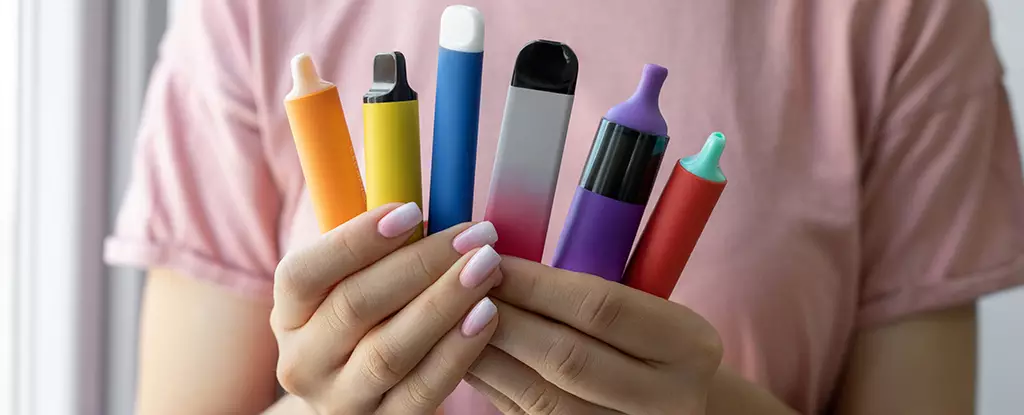In recent years, the use of vapes or e-cigarettes has skyrocketed, with single-use disposable vapes becoming the most prevalent option on the market. Designed to appeal to younger users, these disposable vapes are complex products containing several valuable resources, but unfortunately, there are no practical means to collect or recycle them.
Vapes, whether reusable or disposable, contain common components such as a battery, a pressure sensor, an LED light, a heating element, and a reservoir filled with e-liquid. The teardown of a disposable vape revealed a housing made of aluminium with plastic end caps, a lithium battery, a pressure sensor, and a heating element embedded in an e-liquid reservoir. Despite being non-rechargeable, the lithium batteries in these vapes still maintained a charge that could power a light bulb for at least an hour.
The disposal of single-use vapes contributes significantly to e-waste, leading to a loss of valuable materials such as aluminium and lithium. The presence of energy-dense lithium batteries in disposable vapes poses a fire risk for waste management workers when thrown in the trash. Additionally, the toxic effects of the materials in vapes on the environment further highlight the negative impact of these products.
Single-use vapes are made up of a combination of valuable metals and low-value materials like plastic, making them difficult to separate and recycle effectively. The lack of a sustainable recycling process for vapes results in the wasteful use of resources and poses a threat to the environment.
With the prevalence of single-use vapes on the rise, there is an urgent need for greater regulation around the disposal and recycling of these products. Manufacturers should be held accountable for the environmental impact of their products and should work towards developing more sustainable alternatives.
The environmental impact of single-use vapes is a significant concern that needs to be addressed. The wasteful use of resources, the potential fire risk posed by lithium batteries, and the toxic effects on the environment all point to the need for greater awareness and regulation in the vaping industry. It is crucial that steps are taken to ensure the proper disposal and recycling of vapes to minimize their negative impact on the environment.


Leave a Reply